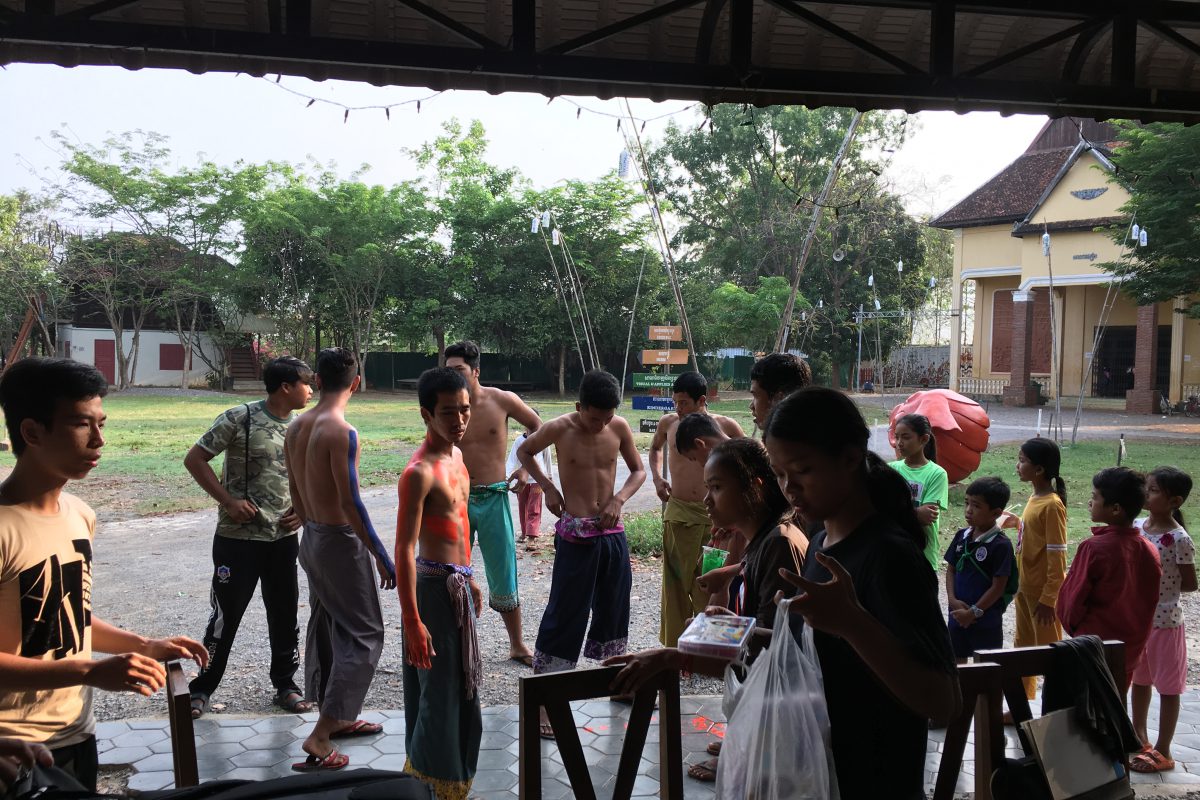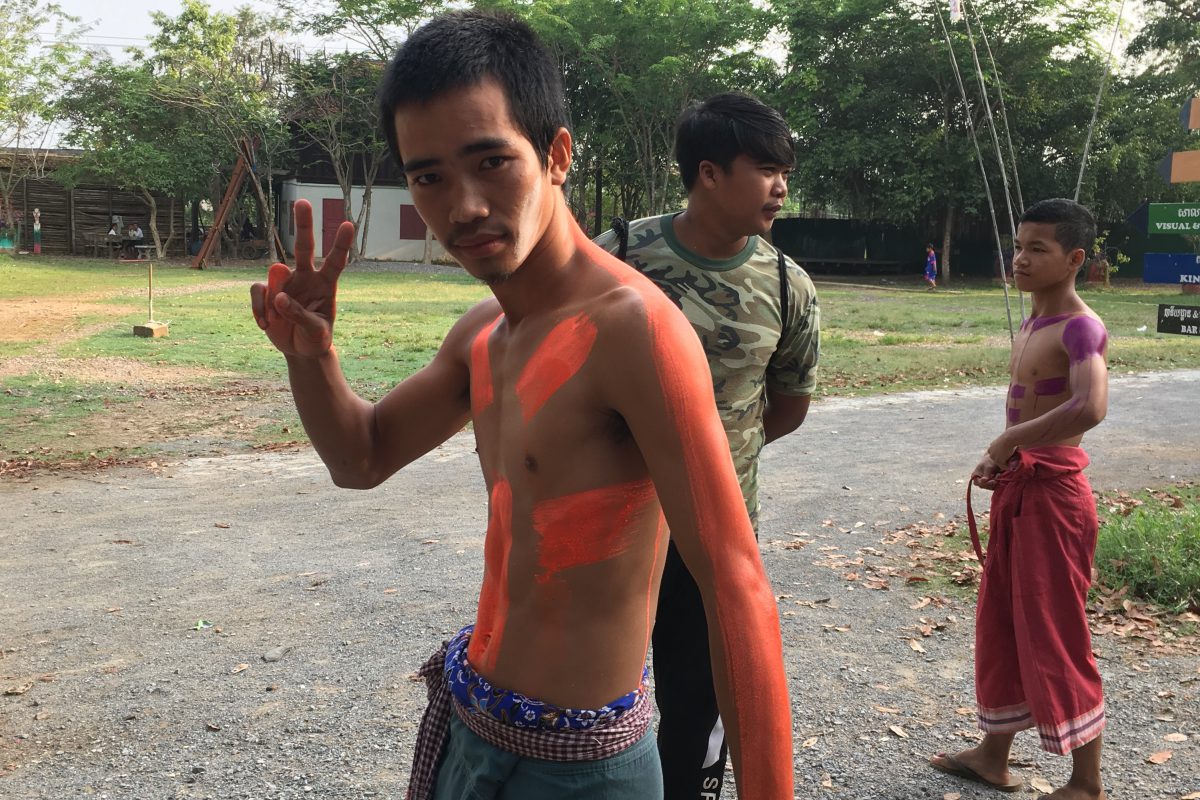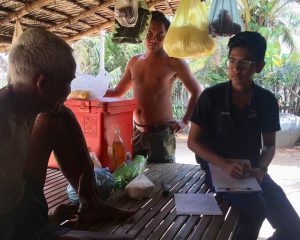It was the high of my life, the peak of my youth, the pinnacle of my high school years. Right after the very long and stressful SAT bootcamp I had to go through, I found myself living, studying and working with eight of my friends, 300 kilometers away from school. We were embarking on an ambitious journey, shooting for one far, bright star that most people would call us, teenagers, crazy for even trying. We wanted to write, produce, film and edit a full-length, feature fantasy film. At this point, my life just did a 180-degree flip, going from hammering hard on my math and English to being in my own creative headspace, dreaming about a love story. This was all that my filmmaking inner child wanted to do, and quite frankly, that’s all that I did.
I got lost in my dream. I was like the Forrest Gump that runs and runs until the day he feels like coming back home, but before I could come back home, I tripped over, face planted onto the ground. I let all of my emotions, my adrenaline, my excitement, my manifestation for this movie take control of everything in my life. When agreed upon this internship, I was required to keep up with my school responsibilities while I was making this movie, more specifically I had to do five hours of each math and English literacy every week, and anything else would result in getting dropped from this internship. To be completely honest, I knew that this would be a tough task for myself but I couldn’t resist turning down an opportunity that would forever change my life before even giving it a try, because that’s just who I am; I take risks that I know the consequences and difficulty of. But did I?
The first seven weeks went by and I was doing the bare minimum hours of math and turned in none of my English assignments. “As I finalize all grades for this round, I noticed that these assignments are still missing and were due weeks ago. Please complete by the end of the week if you want to receive any credit,” wrote my English teacher, Cara Shelton. I ignored her. Every time I saw these messages my stomach cramped up and my body started sweating. But then I was swung into the dream that I was living. The dream had become my reality and nobody could stop me.
I had my first warning. “Hello. I have not received any communication from you about your missing assignments nor have you completed any of the work. I do not have any option but to give you the zeros for the missing assignments, which was something I really, really did not want to do,” Cara followed up three weeks later. I’ve failed my classes, but more importantly, I failed myself and my facilitators’ trust.
That was the alarm that went off; the slap in the face that woke me up from my deep daydream. I decided to write an apology letter; one that was raw, transparent, and genuine (and, unintentionally, with every apology letters, sappy). “I’m so ashamed to admit my mistake of how much I messed up, last term,” I wrote. “When it comes to academic studies, I always try to keep up with the assignments… [but] somewhere along the way I lost motivation to do the work. It sounds stupid and it is and I was and I regret what I did.” I continued, “I hope you still trust me and allow me to have my second chance.” It was one of the hardest and most humiliating pieces of literature I’ve written in my entire life, but despite all the discomfort I went through when my fingers hit the letters on the keyboard, forming emotions in the form of an email, the self-reflection I had was the gem of that letter.
The most haunting part of this episode of my beautiful, dark, twisted show of a dream-turned-nightmare was living with the guilt afterward. I felt like a failure. I felt like the filmmaking life I’ve been dreaming about wasn’t for me. I lost hope in everything I was doing because I thought I failed so miserably that I can’t achieve anything in my life. The inner filmmaking child in me started to die out because I didn’t forgive myself and instead, started beating myself up.
I struggled with self-forgiveness. I thought I should’ve just quit. “Thank you for this email. Truly. It takes courage to admit when you are wrong and to acknowledge difficult life lessons. Of course, I will give you a second chance,” Cara replied. Knowing the person I hurt and disappointed had forgiven me, made me forgive myself. With months left, a movie to make, a huge experience to learn from, I told myself that I won’t let this mistake ruin this significant chapter of my life. I asked myself why am I doing the internship? What’s the main purpose of making this movie? What’s worth all the struggles and pain? The one answer I always come back to is my love and passion for the art of filmmaking.
People think of dreams as this utopia, filled with rainbows and unicorns, which in some cases are true, but most likely, not. It’s just what people hope to happen, and nothing else, and personally, I fell into the same trap as most people. I went into this underestimating the price tag of what I swiped my card to buy. That price tag that would haunt me afterward with the bills of what I bought. To this day, I still ask myself, was it all worth it? Without all the pain, and trouble I put myself through, I don’t think I would’ve learned so much from the internship. Not just about filmmaking and the different skills that will benefit me in my careers, but most importantly, about balance, trust, perseverance, self-forgiveness and the cost of living a dream.








